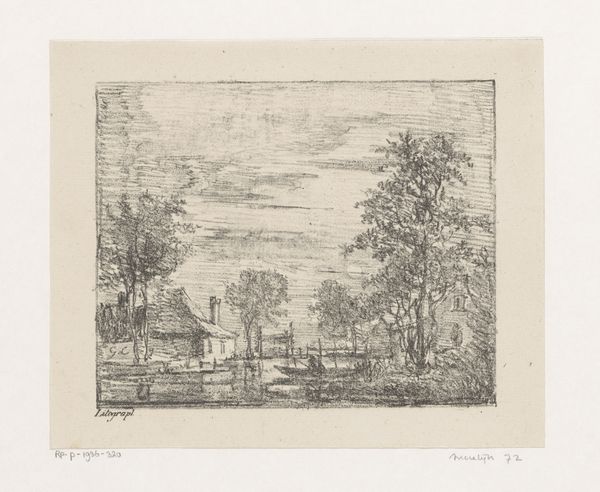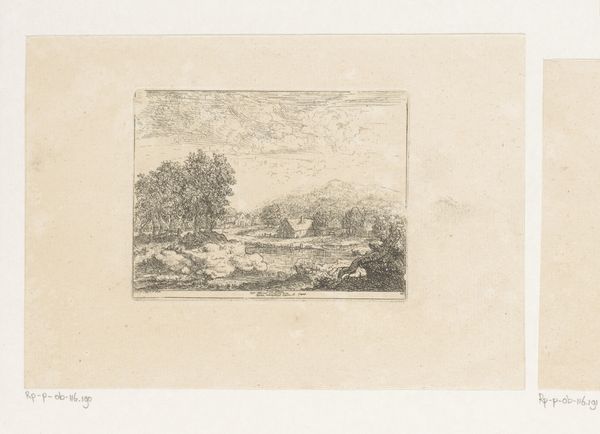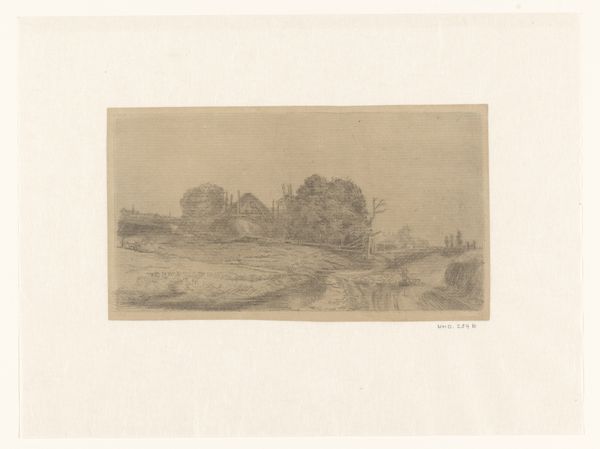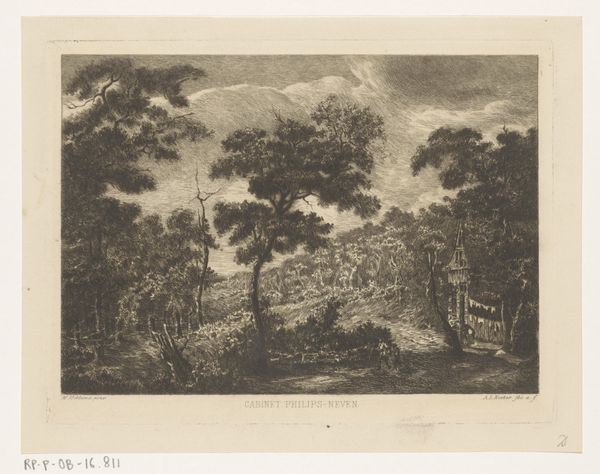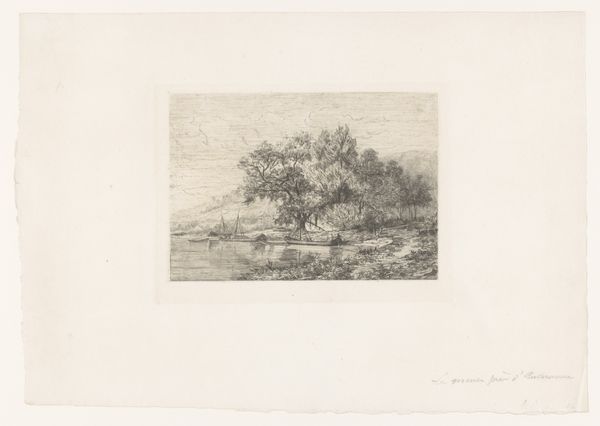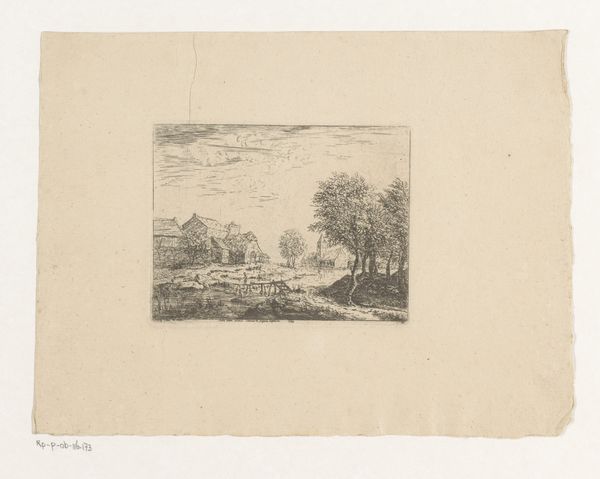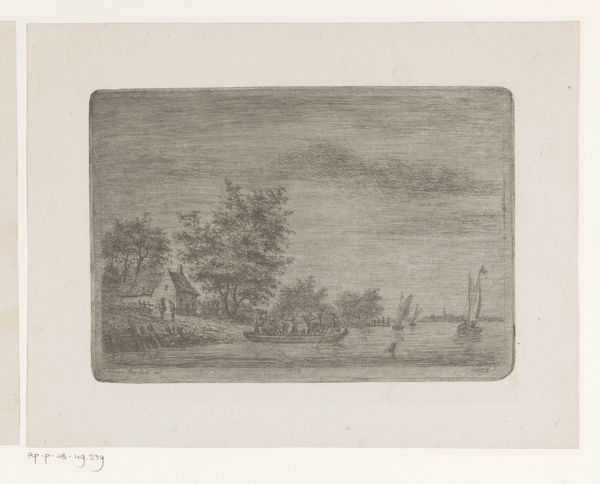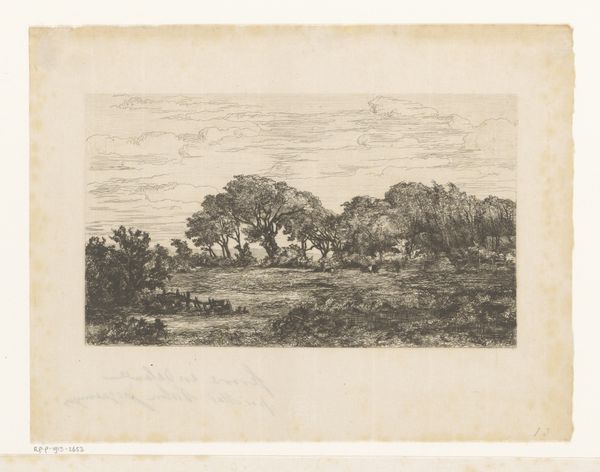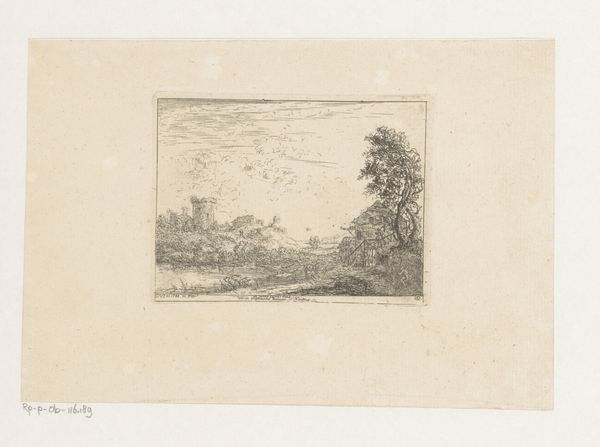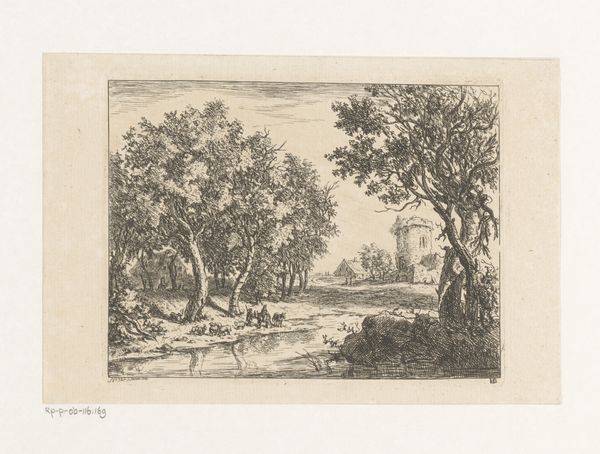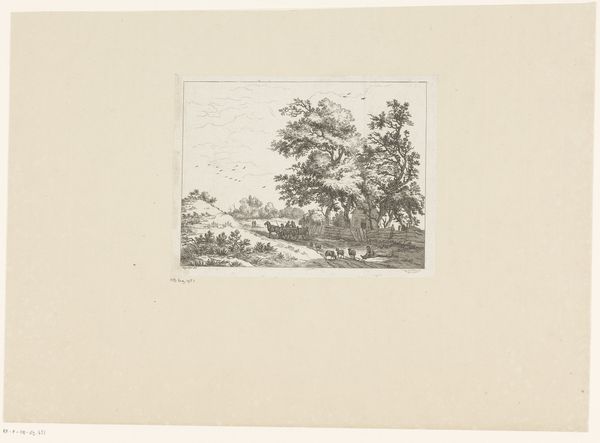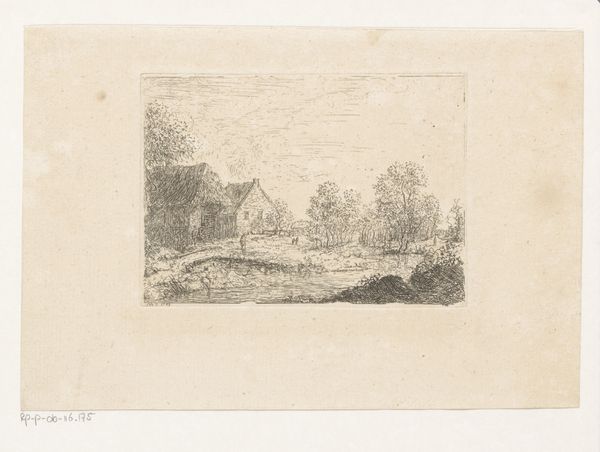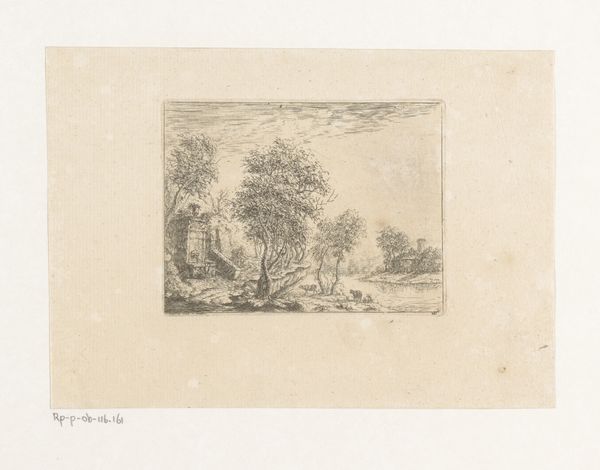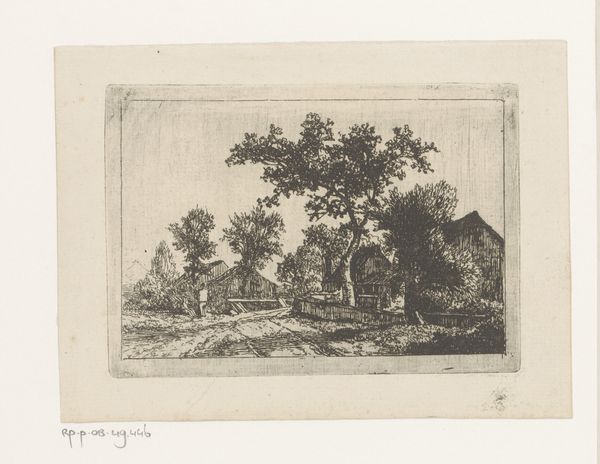
print, etching
# print
#
etching
#
landscape
#
realism
Dimensions: height 153 mm, width 226 mm
Copyright: Rijks Museum: Open Domain
Editor: Here we have Jean Théodore Joseph Linnig's etching from 1880, "View of Delfshaven from the Water". The way the light catches the water and reflects onto the buildings gives it a really interesting textural quality. I'm curious, how do you see this work through a historical lens? Curator: Considering its public role, this etching offers a window into the late 19th-century fascination with portraying the working waterfront. Printmaking, as a medium, made art accessible to a wider audience. Delfshaven, with its bustling harbor, symbolized Dutch trade and maritime power. Why do you think Linnig chose this particular perspective? Editor: Perhaps to highlight the everyday life, rather than the grandeur? Curator: Precisely! Instead of a heroic naval scene, we see the intimate connection between the town and the water, the buildings almost growing out of the harbor. The realism adopted highlights the lived experience of Delfshaven's inhabitants. It's a commercial, not just a cultural or a naval hub. Consider how the composition leads our eye; what social and political context can we apply to that effect? Editor: I see what you mean. The eye is drawn to the structures that meet the water, those locations for commercial activities. Did this etching challenge or reinforce the common representation of Dutch maritime identity? Curator: I would argue it offered a subtle recalibration. It affirmed the importance of maritime activity, but by focusing on the daily lives of people within a more industrial, urbanized space, it added layers of nuance to the existing visual rhetoric. Did studying it in that perspective provide an unexpected connection to Realism as a style? Editor: It absolutely does, especially considering how realist art had an intention to demonstrate the social conditions of everyday people. It all makes sense now! Curator: Indeed! This etching really illuminates how artistic choices are entwined with the prevailing cultural and political climate. I’ve learned from your fresh eyes.
Comments
No comments
Be the first to comment and join the conversation on the ultimate creative platform.
